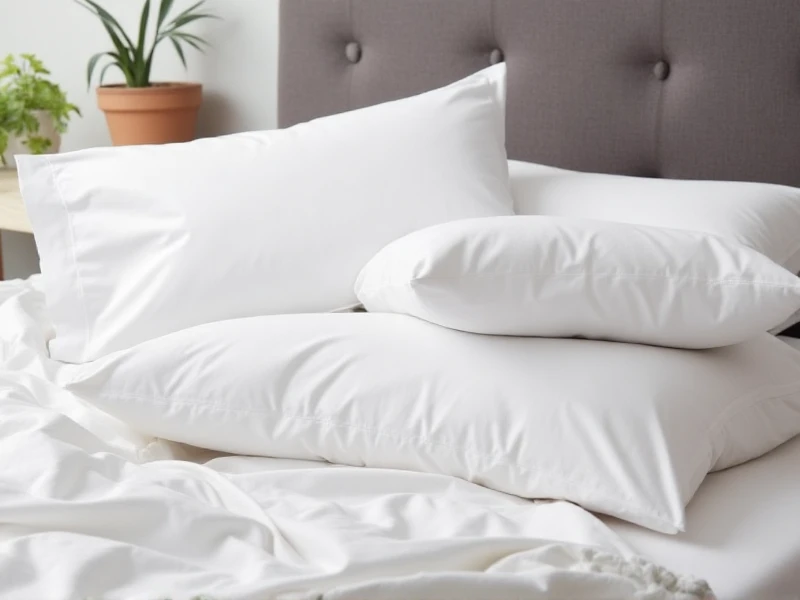The Ultimate Guide to Choosing the Perfect Bed Sheets for Better Sleep
2025-06-05

If you've ever tossed and turned on a scratchy, worn-out bed sheet, you know how much it can ruin your night's rest. As a bedding enthusiast, I've spent years researching and testing different bed sheets, and I can confidently say that investing in high-quality ones is a game-changer for comfort, health, and style. Not only do they enhance your sleep by regulating temperature and reducing allergens, but they also add aesthetic flair to your bedroom decor. In this guide, I'll walk you through everything you need to know to pick the ideal bed sheets. From discussing fabric types to debunking common myths like thread count hype, we'll cover why these details matter to ensure you get the best value for your money. Whether you're a hot sleeper, eco-conscious shopper, or just value affordable luxury, let's dive into how the right bed sheets transform your daily life.
Understanding the Fabric Choices for Bed Sheets
The material of your bed sheets plays a crucial role in how comfortable you feel and how well they perform over time. Cotton sheets are a top pick for many households due to their breathability and durability. Egyptian cotton, for instance, is famous for its long fibers that create a smooth, soft finish ideal for all seasons. If you're on a budget, microfiber sheets offer a silky feel and resist wrinkles well, but they might trap heat for sensitive sleepers. Linen bed sheets, woven from flax, excel at moisture-wicking and durability, making them perfect for warmer climates or those who sweat at night. However, linen can wrinkle faster, requiring extra care. For ultimate indulgence, silk sheets are hypoallergenic and luxurious, though they're usually pricier and more fragile. Whatever you choose, focus on your needs – prioritize organic or OEKO-TEX certified options if you have sensitive skin or allergies to chemicals. Remember, the fabric directly affects breathability, so test sheets before committing to long-term use.
Why Thread Count Matters (and When It Doesn't)
Many shoppers get hung up on thread count when selecting bed sheets, but it's not the whole story. Thread count refers to the number of threads per square inch in the fabric, and a higher number often indicates a denser, more luxurious feel. Typically, aim for 200-800 for everyday sheets – anything below might feel coarse, while above can be too heavy for airflow. But here's a key insight: quality brands can produce amazing bed sheets with lower thread counts by using better weaving techniques. For example, percale weaves (like 200-300 thread count) create a crisp, cool sensation, ideal for summer, while sateen (400 ) offers a silky finish but may need frequent washing. Don't be fooled by inflated numbers; some manufacturers pad thread counts artificially, so check for reputable sources. Instead, balance it with fabric type – high-quality cotton in the 300-600 range usually hits the sweet spot. In my experience, focus on durability tests like how well sheets hold up after multiple washes, which is a better indicator of long-term value.
How to Select the Right Bed Sheets Based on Size and Style
Getting the size right is foundational to avoiding discomfort. First, measure your mattress accurately, as bed sheets come in standard options like twin, full, queen, king, or California king. Deep-pocket sheets are essential if you use a mattress topper; look for at least 14-inch pockets to prevent slipping. Next, consider aesthetic factors. Solid colors like white or navy bed sheets provide timeless sophistication and are easy to match with bedroom themes, while patterned or printed ones add flair without overwhelming the space. For smaller rooms, choose light or bright shades to create an illusion of space. Beyond looks, think about practical features: elastic bands on fitted sheets ensure a snug fit, and flat sheets without extra frills save you hassle during bed-making. If noise is a concern, opt for quieter fabrics like brushed cotton over rougher ones. Finally, always buy high-quality sheets on sale – I recommend waiting for seasonal promotions or using coupon sites to invest in brands like Parachute or Brooklinen without overspending.
Tips for Budget-Friendly and Eco-Conscious Bed Sheets
Who says finding affordable and sustainable bed sheets has to break the bank? Start by setting a budget: you can find excellent options under $50 for a set if you prioritize essentials like cotton blends. Shop off-season sales or outlet stores for last season's designs – I've scored great deals this way. For eco-shoppers, seek out brands using organic materials, recycled fibers, or low-impact dyes to reduce your carbon footprint. Many ethical companies now offer bed sheets made from bamboo or Tencel, which are naturally breathable and biodegradable, without the chemical residues of synthetic options. Certifications like GOTS (Global Organic Textile Standard) help verify environmentally friendly production. But don't sacrifice quality; even budget sheets should withstand regular washing. On that note, care is critical – wash bed sheets weekly in cold water with mild detergent to preserve their texture and color. Avoid fabric softeners as they can break down fibers over time. By making such choices, you're not just treating yourself to better rest; you're contributing to a healthier planet with every purchase.
Updating your bed sheets might seem like a small change, but the impact on sleep quality and daily well-being is immense. As someone who's seen firsthand how premium sheets can alleviate night sweats or allergies, I urge you to experiment with different materials and features to find your perfect match. Don't settle for subpar options – prioritize trials or return policies to ensure satisfaction. With the knowledge from this guide, you're ready to elevate your bedroom experience. Your journey toward dreamy nights starts with the right set of bed sheets today; invest wisely for years of cozy, restorative sleep.
Category: